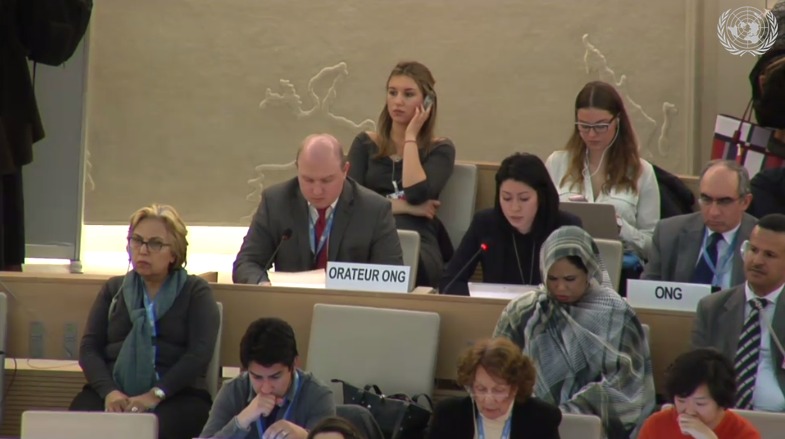On Thursday 8 March 2018, ADHRB’s Director of Advocacy, Michael Payne, delivered an intervention during the Item 2 Interactive Dialogue with the High Commissioner for Human Rights in which he welcomed the High Commissioner’s continued efforts to highlight the human rights situation in Bahrain. Click here for a PDF of the intervention.
Mr. High Commissioner,
Americans for Democracy & Human Rights in Bahrain again welcomes your report to this Council, and your continued efforts to highlight the human rights crisis in Bahrain.
We in the Bahrain human rights community have greatly welcomed your repeated highlighting of our colleague Nabeel Rajab’s recent sentencing to 5 years in prison for tweets criticizing torture in Bahrain’s prisons and the humanitarian catastrophe in Yemen. We too see his sentencing as, “yet another serious setback for Bahrain’s international reputation.”
Nabeel’s case takes place in a wider context of human rights defenders and civil society organizations continuing to suffer from intimidation, harassment and restrictions. The violent torture and reprisal detention of Ebtisam al-Saegh remains unresolved, and the government maintains fabricated terrorism charges against her. Indeed, broad-based civil society restrictions and intimidation have resulted in no domestic Bahraini civil society members attending this Council session.
In addition to effectively closing Bahrain’s civil society space, the government has also moved swiftly to further close off political space in advance of the kingdom’s upcoming parliamentary elections. All main opposition societies have been dissolved, no independent press remains, and spurious new charges of Qatar-linked espionage in 2011 are now being pursued against Sheikh Ali Salman – the Secretary General of the largest opposition political society. Further still, the Bahraini parliament has been debating a bill that would completely disenfranchise any individual who has ever been affiliated with a dissolved political society, or who has ever been convicted by a court. Some estimates state that this may bar 70,000 people or more from seeking political office or even voting in the upcoming elections.
Mr. High Commissioner, in the context of this closing civil and political space in Bahrain in advance of the kingdom’s upcoming elections, what fundamental steps do you recommend that Bahrain take to address the deep trust deficit between much of Bahraini society and their government, and to create an environment conducive to political dialogue, and legitimate, free, and fair elections?
Thank you.





